Knut Drescher
Biozentrum, University of Basel, Switzerland
Emergent Functions of Bacterial Biofilm (Expert Lecture: Biofilms)
Refined over millions of years of evolution, biological materials such as bone, wood and shells are of spectacular beauty and teach us the principles of material design and synthesis. Biological materials are inherently multifunctional and display diverse material properties that we cannot yet reproduce by synthetic routes. They are often composed of a remarkably small number of simple building blocks which are hierarchically structured. The function and properties of biogenic materials depend on the controlled organization of those building blocks at multiple scales which is brought about by the action of the organism’s processing machinery. Understanding the design and production of biological materials (learning from nature) is pivotal to develop new fabrication strategies for the manufacturing of advanced materials with structure and properties mimicking biogenic materials with high precision.
This DIGS-BB Summer School, primarily aimed at Master’s and advanced Bachelor’s students, brings together local experts from the PoL, CRTD, BIOTEC, B CUBE, Faculty of Biology, as well as MPI-CBG, IPF, and IFW with renowned external scientists in the field of biomaterial research and interested students. The school will consist of scientific talks, methods lectures and hands-on sessions in participating labs. The 5-day program includes ample time for stimulating discussion and social activities, and is tailored to foster interdisciplinary collaboration which is a hallmark of the Dresden Science and Innovation campus.
In this summer school, which will focus on how organisms control and tune their properties, you will learn about the fundamental principles underlying the formation of diverse biological materials and you will be introduced to many advanced tools used to investigate them. Moreover, the school will provide insight into how the architecture and hierarchical organization of biological materials can inspire the design of novel and sustainable materials.

If you’re working on campus, you’re welcome to come and listen to the talks of the following speakers on Monday and Tuesday – no registration needed!
Biozentrum, University of Basel, Switzerland
Emergent Functions of Bacterial Biofilm (Expert Lecture: Biofilms)
Knut Drescher received his undergraduate education in physics at the University of Oxford, before pursuing a PhD in biophysics at the University of Cambridge. He became interested in molecular biology and bacterial biofilms during his postdoctoral training at Princeton University, in the Department of Molecular Biology from 2011–2014. In 2015, Knut moved to Marburg in Germany, where he led a research group at the Max Planck Institute for Terrestrial Microbiology, and where he was a professor of biophysics at the Philipps University of Marburg. In 2021, he relocated his lab to the Biozentrum at the University of Basel in Switzerland. Knut’s research combines methods from physics and molecular biology to understand bacterial collective behaviors, with a focus on biofilms and swarming behaviors.
University of Wisconsin-Madison, USA
Coral Reef Formation from Nanometers to Kilometers (Expert Lecture: Biomaterials)
Max Planck Institute of Colloids and Interfaces
Expert Lecture: Protein Based Materials
Dr. Franziska Jehle is currently a Research Group Leader in the Biomaterials Department at the Max Planck Institute of Colloids and Interfaces in Potsdam. Her group is interested in the various mucus-based materials that snails secrete for several – and even partially contrary – functions: lubrication, adhesion, defense and protection. The main research objective is the elucidation of key building blocks and mechanisms underlying the multiple functions of snail mucus.
Franziska Jehle received her Ph.D. in Biochemistry in 2019 for her work focusing on the self-assembly of a hierarchically-structured protein-based biological material, the mussel byssus. This was followed by a Postdoc in the group of Prof. Matthew Harrington at McGill University in Montreal, Canada, where she investigated the smectic liquid crystal forming collagenous protein precursors for byssus fabrication.
MIT, Cambridge, MA, USA
On Butterflies and Bio-Inspired Dynamic Optics: How Structures Form and Deform to Manipulate Light and Color (Expert Lecture: Polysaccharides Based Materials)
Mathias’ research focuses on the translation of unique biological light manipulation concepts into bio-inspired, adaptive, and actively tunable micro-optical devices. Through experimentation and optical modeling, and by employing a diversity of manufacturing principles including self-assembly and unconventional thin film processing techniques, his group is developing novel optical technologies. He joined the faculty of MIT in November 2013. Prior to that, Mathias held a Feodor Lynen research fellowship of the Alexander von Humboldt Foundation for postdoctoral studies at the School of Engineering and Applied Sciences of Harvard University, where his research was focused on bio-inspired photonics, bio-imaging and optical spectroscopy. He earned his degree in physics from the Saarland University in Germany and the University of Lorraine (formerly Henri Poincaré University) in France in 2006. Mathias then continued his graduate studies at the University of Cambridge in the UK at the Cavendish Laboratories, receiving his Ph.D. in 2010.
University of Copenhagen, Denmark
Cellulose Synthesis in Land Plants (Expert Lecture: Polysaccharides Based Material)
Israel Institute of Technology, Israel
Materials Design Strategies in Biomineralization and Their Implementation in Synthetic Systems (Expert Lecture: Biominerals)
Boaz Pokroy is currently a full Prof. in the Department of Materials Science and Engineering at the Technion Haifa Israel where he also gained all his academic degrees. Prior to that he was a post doctoral fellow and a Fulbright scholar at the School of Engineering and Applied Sciences Harvard University, Cambridge MA USA and Bell Labs, Murray Hill NJ.
The research of Pokroy focuses on biomineralization and bio-inspired materials. He studies the structure of bio-minerals on the atomic, nano and meso-scales using state of the art high-resolution characterization techniques such as high-resolution synchrotron diffraction and aberration corrected TEM. Based on the strategies that organisms use to produce natural materials, his lab also develops novel bio-inspired materials, such as semiconductors whose band gap can be tuned by the incorporation of intracrystalline biological molecules, controlling the short range order of nano-amorphous materials and fabrication of superhydrophobic/superoleophobic surfaces for various applications.
Karolinska Institutet, Stockholm, Sweden
Spider Silk Biomimicry (Expert Lecture: Protein Based Materials)
Anna Rising is professor in veterinary medical biochemistry at the Swedish University of Agricultural Sciences and Group Leader at Karolinska Institutet. Dr Rising has pioneered the field of artificial spider silk spinning and is Principle Investigator on an ongoing ERC consolidator grant. She is the inventor of 13 patent families and is co-founder of a biotech start-up company.
Universidade NOVA de Lisboa, Portugal
Bioinspired Systems in Separation and Sensing (Expert Lecture: Protein Based Materials)
Cecilia Roque is an Associate Professor with Habilitation in Bioengineering at the Chemistry Department, School of Science & Technology at NOVA University (Lisbon, Portugal). Cecilia is UCIBIO Director, and also leads the Biomolecular Engineering Lab at UCIBIO-NOVA. She holds a degree in Chemical Engineering (Major in Biotechnology) and a PhD in Biotechnology from Instituto Superior Técnico, and has an Habilitation in Bioengineering from NOVA University of Lisbon.
Cecilia has been a Visiting Scholar at the University of Cambridge and at the Catholic University of America, a Post-doctoral researcher at the University of Cambridge (UK) and at INESC-MN (PT), and a visiting Professor at the University of Cambridge (2006, 2011), University of São Paulo (2015–2018), University of Nantes (2011), City University of New York (2018) and KTH (2022). Her research focus on biomimetics merging chemistry, biotechnology and engineering, and her work has been merited with several national and international distinctions. She has been awarded Starting and Proof-of-concept grants from the European Research Council (2014, 2022), and is currently leading a FET-OPEN project.
Wyss Institute for Biologically Inspired Engineering at Harvard University
Keynote: High Resolution Multi-Material Additive Manufacturing: 3D Fabrication of Biologically Inspired Structures
Dr. James C. Weaver runs the Wide-Field Electron Optics Laboratory and leads the Biologically Inspired Materials and Design Group. Working at the interface between zoology, materials science, biomedical engineering, and multi-material 3D printing, his main research interests focus on investigating structure – function relationships in hierarchically ordered biological composites and the advanced fabrication of their synthetic analogues. He has played critical roles in the development of new model systems for the study of a wide range of biomineralization processes and is an internationally recognized and award-winning scanning electron microscopist.
With a strong history of national and international academic and industrial collaborations, he has coauthored more than 150 journal articles in the biological, physical, and geological sciences. His work has been featured on the covers of more than 40 scientific journals and he has contributed to numerous collaborative art installations, which have been exhibited in Berlin, Boston, Frankfurt, London, New York, Paris, and San Francisco.
These speakers will give talks and practicals for registered participants of the summer school
BIOTEC, TU Dresden
Methodological Lecture: Site Specific Recombination in Model Organisms
Faculty of Biology, TU Dresden
Methodological Lecture: Applications of the CRISPR/Cas Technology
PoL, TU Dresden
Methodological Lecture: Nanomechanics; Hand-On Session: High resolution imaging with atomic force microscopy on the surface of Drosophila egg chambers
CMCB Technology Platform, TU Dresden
Methodological Lecture: Overview of Light Microscopy Techniques
B CUBE, TU Dresden
Hands-On Session: Chitin Self-Assembly into Hierarchically Structured Materials
CRTD and Center for Healthy Aging, Faculty of Medicine, TU Dresden
Hands-On Session: Collagen Deposition in Zebrafish
B CUBE, TU Dresden
Methodological Lecture: Genetic Engineering of Diatoms; Hands-On Session: Molecular Mechanisms of Material Formation by Microalgae
CMCB Technology Platform, TU Dresden
Methodological Lecture: Overview of Electron Microscopy Techniques

CRTD, TU Dresden
Hands-On Session: Collagen Deposition in Zebrafish
PoL, TU Dresden and MPI-CBG
Methodological Lecture: Form Leading to Function at the Subcellular Scale
IFW and B CUBE, TU Dresden
Methodological Lecture: Microscaffolds to study early bone formation
B CUBE, TU Dresden
Hands-On Session: Chitin Self-Assembly into Hierarchically Structured Materials
B CUBE, TU Dresden
Hands-On Session: Molecular Mechanisms of Material Formation by Microalgae
Faculty of Biology, TU Dresden
Hands-On Session: Molecular Mechanisms of Material Formation by Microalgae
B CUBE, TU Dresden
Hands-On Session: Molecular Mechanisms of Material Formation by Microalgae
IPF
Methodological Lecture: Use and limitations of biological structural principles for lightweight composite design
B CUBE, TU Dresden
Hands-On Session: Chitin Self-Assembly into Hierarchically Structured Materials
B CUBE, TU Dresden
Methodological Lecture: Nanomechanics; Hands-On Session: Structural, Crystallographic and Mechanical Analysis of Biomineralized Materials
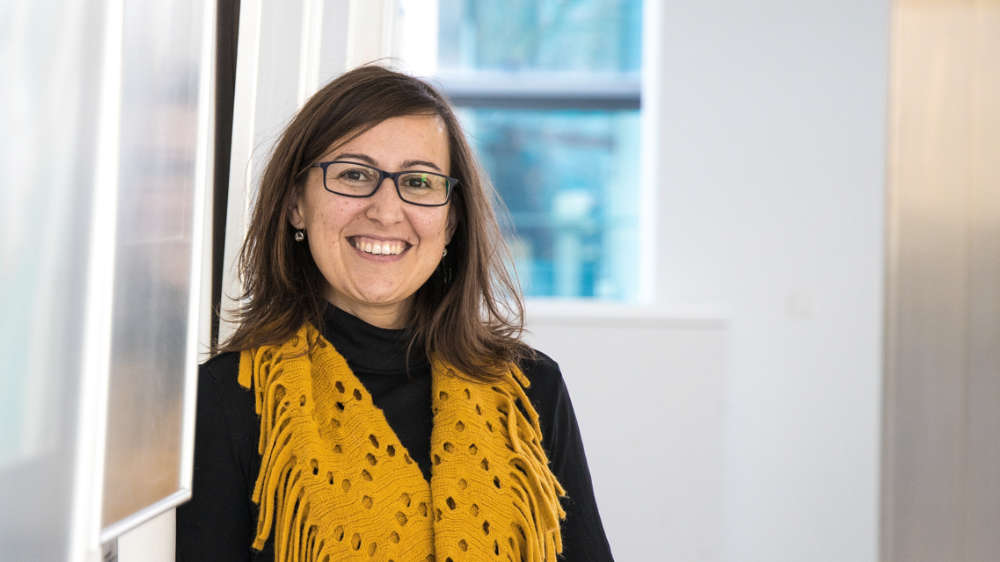
DIGS-BB – Chief Coordinator of PhD Program
Please contact Arantxa in case of questions:
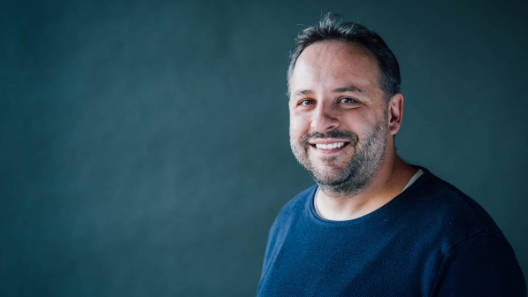
B CUBE, TU Dresden
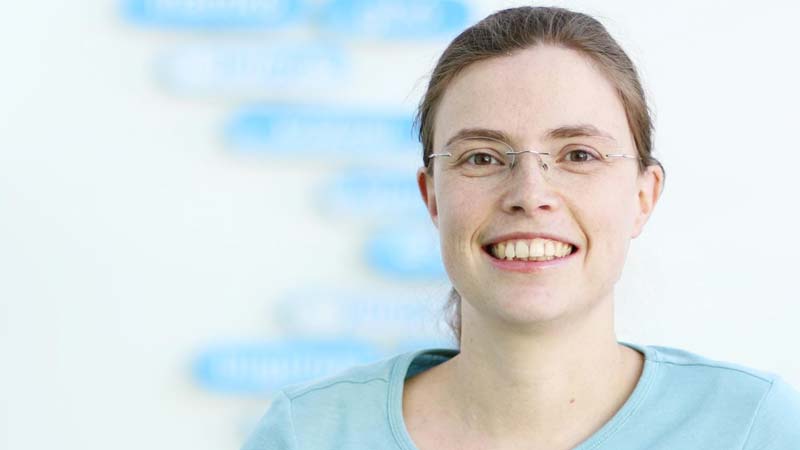
PoL, TU Dresden
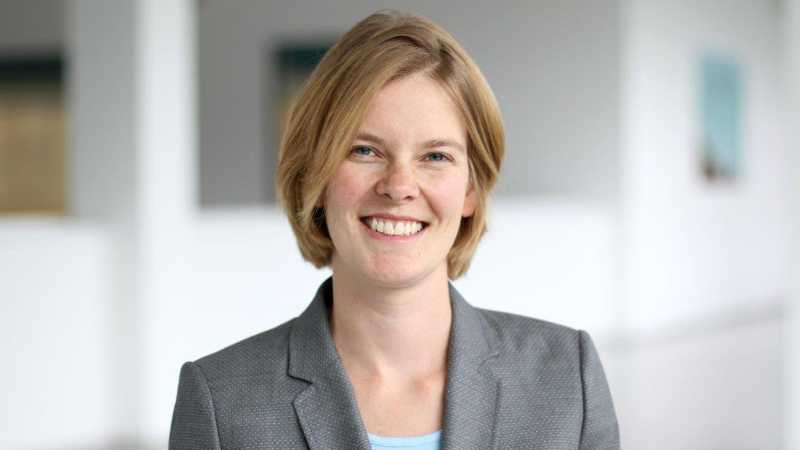
CRTD and Center for Healthy Aging, Faculty of Medicine, TU Dresden
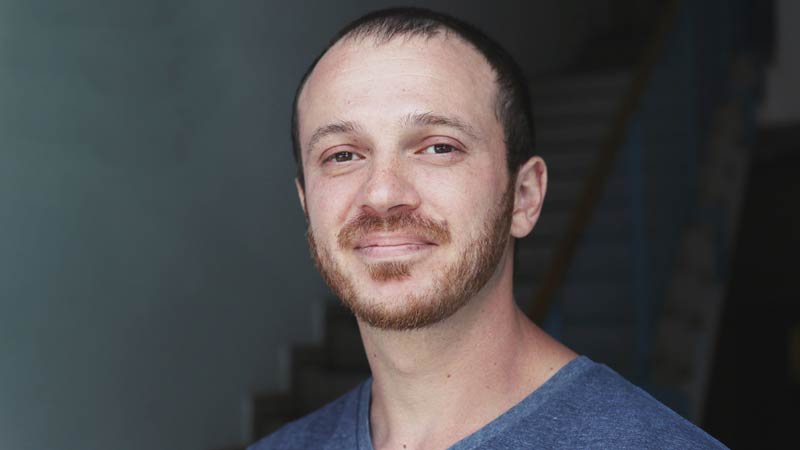
B CUBE, TU Dresden
 DIGS-BB
DIGS-BB
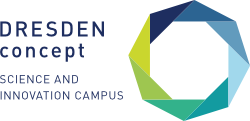 DRESDEN-concept
DRESDEN-concept
 denovoMATRIX
denovoMATRIX
 B CUBE – Center for Molecular Bioengineering TU Dresden
B CUBE – Center for Molecular Bioengineering TU Dresden
 CRTD – Center for Regenerative Therapies TU Dresden
CRTD – Center for Regenerative Therapies TU Dresden
 BIOTEC – Biotechnology Center TU Dresden
BIOTEC – Biotechnology Center TU Dresden
 Physics of Life TU Dresden (PoL)
Physics of Life TU Dresden (PoL)
 MPI-CBG
MPI-CBG
 Leibniz Institute for Solid State and Materials Research Dresden (IFW)
Leibniz Institute for Solid State and Materials Research Dresden (IFW)
 Leibniz Institute of Polymer Research Dresden (IPF)
Leibniz Institute of Polymer Research Dresden (IPF)